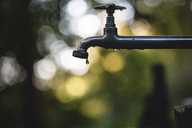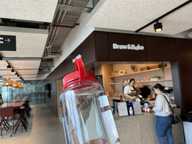Government has set a number of targets for household and business waste which progressively shift the balance from use and disposal of resources and materials towards more efficient models of consumption, combined with circular processes where reuse and recycling are designed in to enable re-use, are both key to reducing the call on our resources, and to the reduction of emissions.
Government is also committed to improve the quality of water and reducing the pollution from waste water through regulation of the water industry.
Better mapping, planning and monitoring of infrastructure can ensure that development can be more efficient leading to the impacts and costs of disruption being minimised and carbon risks mitigated. North East businesses and Local Authorities have made an impact in these areas over the last 2 decades and there are case studies of UK-leading innovation and new forms of delivery in the region. But there is more to do to build on work to date to achieve Net Zero ambitions, including the acceleration of progress to shift the balance of design and production to these approaches.








